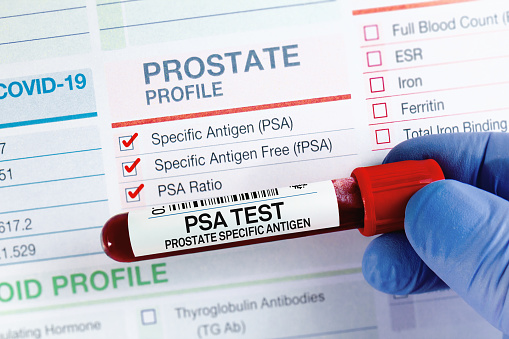About the test
Prostate Specific Antigen or PSA is produced by the prostate gland and it is a main component of the seminal fluid.
It is a reliable marker for the diagnosis of prostate cancer.
Total PSA is comprised by free PSA and bound PSA.
Free PSA is found to be elevated in patients with benign prostatic hyperplasia and decreased in patients with prostatic cancer.
The free PSA/total PSA ratio is used in clinical practice to differentiate benign prostatic hyperplasia from prostatic cancer, especially in men with intermediate levels of total serum PSA.
Sample
Venous blood
Preparation
No diet is required.
Ejaculation should be avoided for at least 48 hours prior to testing.
Strenuous exercise and especially bicycling is not allowed for at least 48 hours prior to testing.
Venipuncture should be performed prior to digital prostate exam as well as before prostatic biopsy or 6 weeks after.
Procedure
Venipuncture
Increased values
- Benign prostatic hyperplasia
- Cirrhosis
- Urologic manipulations
- Prostate cancer
- Prostatitis
- Recent sexual activity
- Urine infection
- Drugs (allopurinol)
Decreased values
- Drugs (finasteride)
Additional information
- Apart from evaluation of the total PSA value, PSA velocity should also be carefully assessed over time. An increasing PSA value rate should be carefully estimated. Thus, even if total serum PSA value is within normal range, an elevation rate of at least 0.75 ng/mL per year is not normal and needs to be further analyzed.

